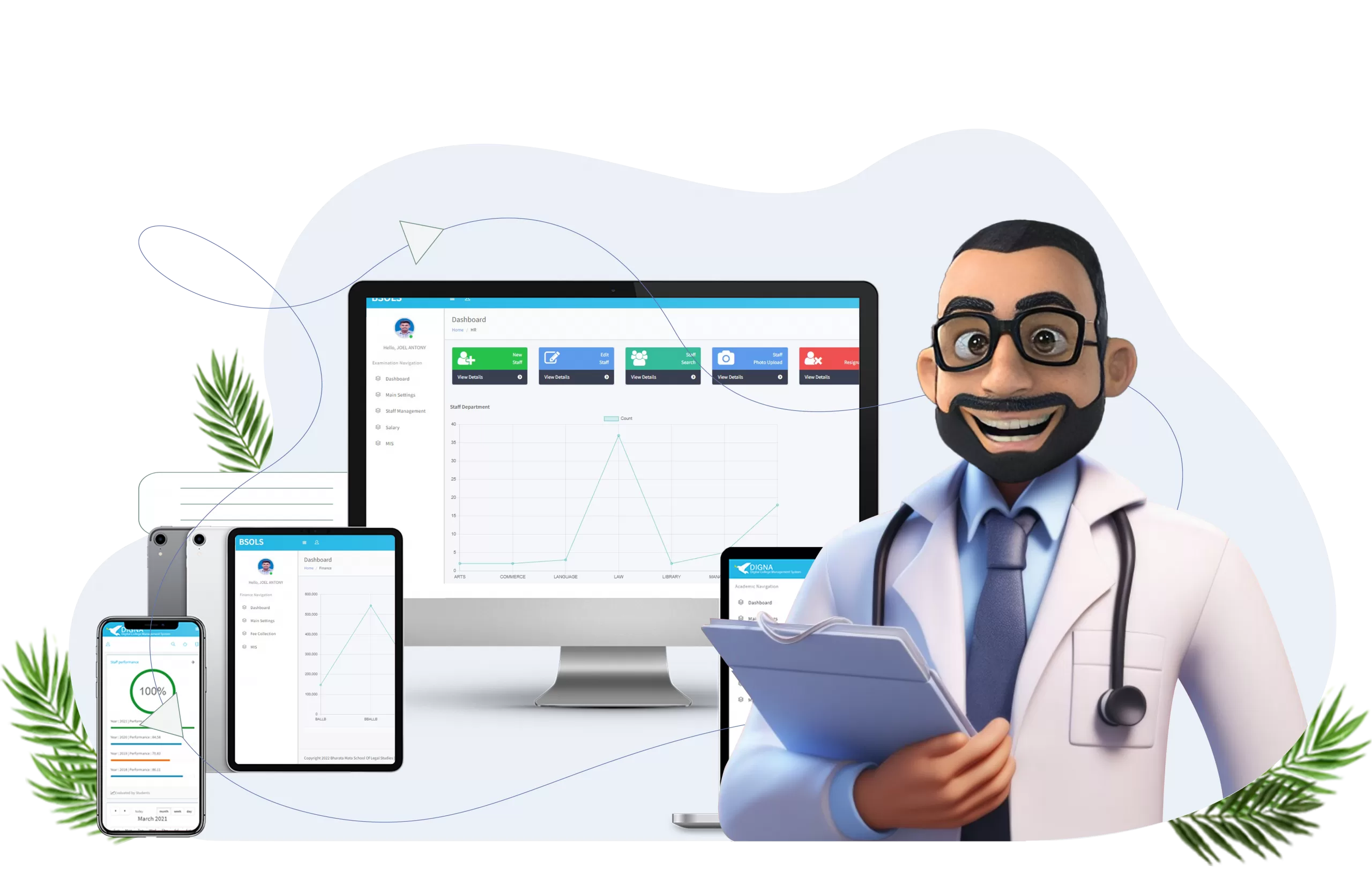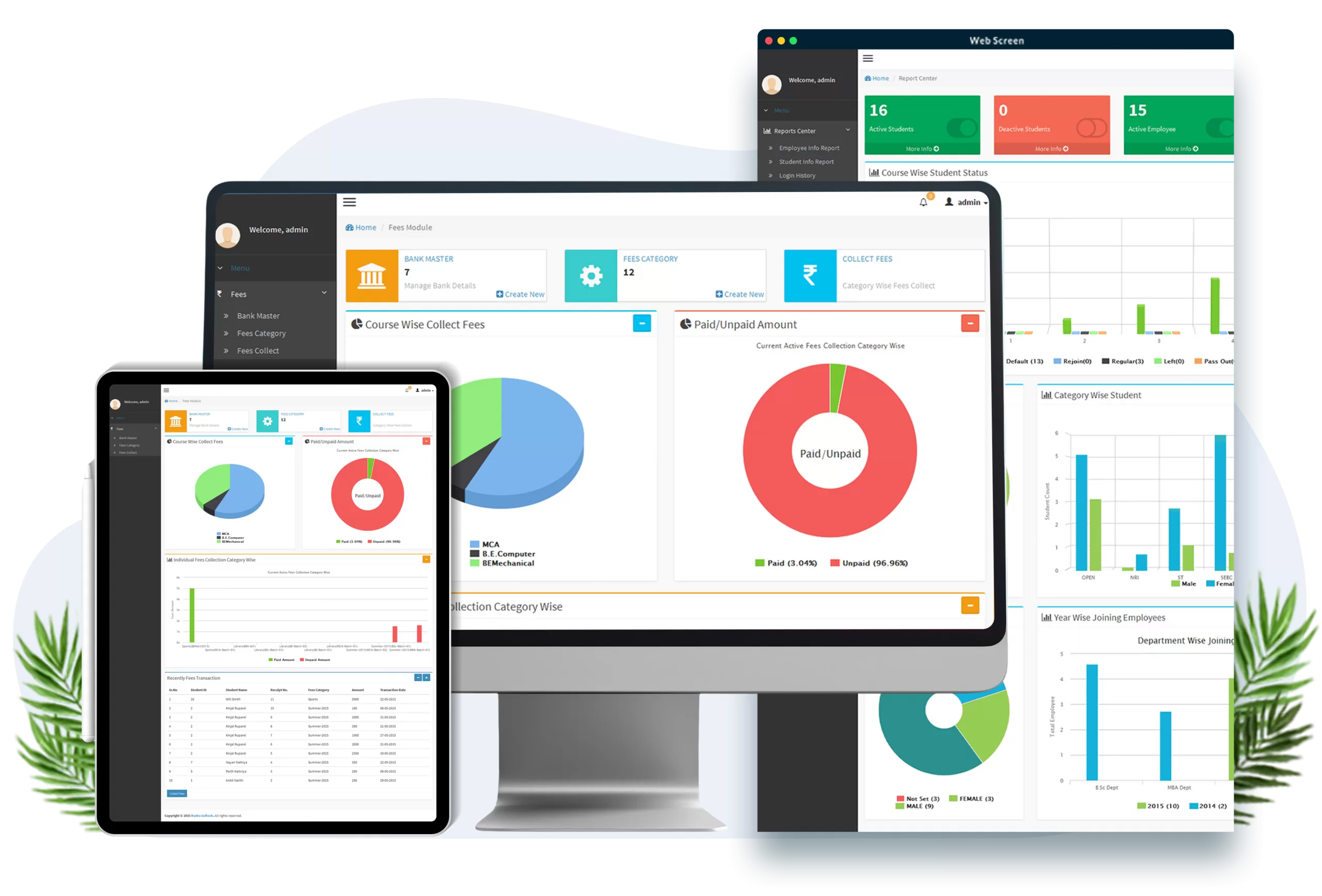Medical College Management System Software

An ERP system can make medical college administration more efficient and streamline operations for students and staff.
Several add-on modules easily track everything from a student’s personal information to academic progress.
Our cloud-based solutions enable management to make timely, data-driven decisions, reduce costs, and improve the institution’s performance.

Core Modules of Medical College System Software
Core Module of Medical College Management System Software
Role and Importance of the Medical College Management Software
Role and Importance of the Medical College Management Software

The role of the college management system is to oversee the day-to-day operations of a college or university, ensure that it is running smoothly and effectively, and make strategic decisions that will help the institution achieve its goals. This includes managing the college’s financial resources, developing and implementing policies and procedures, and coordinating with various departments and staff members to ensure that the college is meeting the needs of its students and other stakeholders.
The importance of college management cannot be overstated, as it plays a crucial role in the institution’s success. Effective college management can help a college or university provide high-quality education, attract and retain students and faculty, and achieve its overall mission and goals. On the other hand, poor management can lead to problems such as low enrollment, financial difficulties, and reduced quality of education. Therefore, colleges and universities need to have strong, capable leadership at the management level to ensure the long-term success and viability of the institution.

How to Choose Medical College Management Software
How to Choose Medical College Management Software
When choosing college management software, there are several factors to consider:
Researching and reading reviews from other colleges and universities using the software you are considering is also a good idea. This can give you a better idea of how well the software works in practice and whether it is a good fit for your institution.






